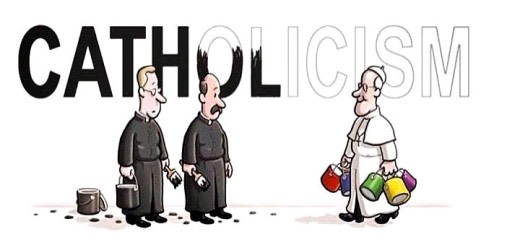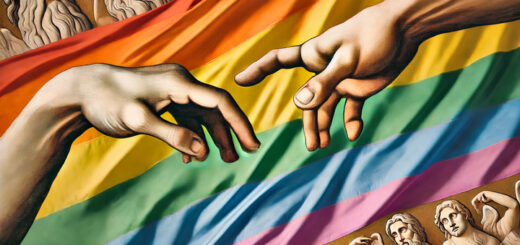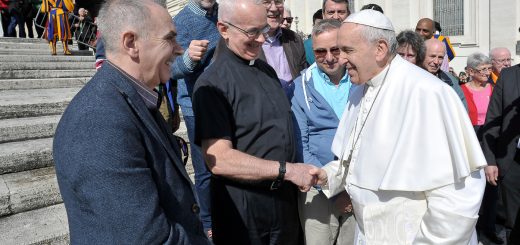The Waldensian and Methodist Church in the face of homosexuality. What has changed in the last ten years?
 Reflections by Gregorio Plescan, Waldensian pastor
Reflections by Gregorio Plescan, Waldensian pastor
In the last decade the approach of the Waldensian and Methodist churches to the homosexual universe has changed. This did not happen in a particularly sensational or uniform way, because there are certainly also various "spaces of homophobia" in our communities and it is good to remember this, to avoid deluding ourselves too much of being in a small corner of great tolerance, better from world around us.
The deepest change is given by the fact that today, in many Waldensian and methodist communities, we can speak openly about the question of homosexuality, just as it is not a taboo to think, say and write that even gay and lesbian couples must be able to have some form of recognition of their relationship by the Church.
It is not an easy path: in all the churches a certain conservatism and a certain moralism lurks, which does not only concern the sphere of affectivity, but which in reality often makes sure that the test bench of the faith is essentially the chamber from Bed.
Being able to speak serenely of homosexuality in the church also means accepting to reveal how and what regard to each one of us is moralistic and raising a difficult but indispensable question, the one according to which love has many ways of expressing itself and nobody can say which if There is one admissible one.
The change of perspective with respect to homosexuality has implied a rethinking that touches at least three aspects of our usual way of thinking: the reading and interpretation of the Bible and our history.
With regard to the Bible, the question of the glasses one wears to read it has arisen (and continues to arise again). Scripture has often been considered a "container of recipes" to be applied to reality, even when its approaches to the world reflect situations that are now very distant in time and linked to social and political conditions that are difficult to compare with ours.
In short, we must understand that "conforming our lives to the Bible" does not mean pretending to live in the time of King David or Jesus, but rather making the effort to compare the situations of those who speak the Bible to those we experience.
A real effort, because it forces us to compare, listen and admit that the "truth" must be sought day by day and we cannot pretend that it has been revealed to us once and for all. This operation is demanding but useful for addressing other facets of the relationship between faith and life, not just the ethical ones.
The relationship with history is equally delicate and not so easy to understand for those who are not Waldensian. Like all groups, the Waldensians also have a "collective mythology", an image of themselves which is much more solid than one might imagine: the history of the Waldensians, so painfully marked by wars and persecutions, has ensured that often the qualities of the reference characters were the virile firmness of the heroes and the traditional femininity of the heroines.
It is therefore not easy for everyone, to imagine that some historical reference characters were gay and lived their homosexuality in the dark, with anguish and shame: until a few years ago, for example, a book on the methodist Jacopo Lombardini, who died martyr in a German lager because Anti -fascist militant, he took an incredible tour of words to say and not say that perhaps he was gay.
Talking about homosexuality wants in practice to say that even the brother or sister can be homosexual without this constituting a problem or that it is followed by a "yes, but ...".
The churches tend to present themselves as neutral entities and above the parties, but in reality the relationships that are established there are often the mirror of the values and disvalues of society in who they move. In our tradition, as for other in many other Italians, there are undoubtedly patriarchal incrustations and a certain way of thinking about the relationships between people is based by a series of unwritten but binding laws.
Opening yourself to frank discussions on homosexuality also means accepting that there are different ways of living some clips of one's existence, in which some can be discovered that there are ways of being and acting unspeakable that instead I can be rethought.
This is a journey, for now, above all begun and not completed. The day in which we will learn to think of others as people whom God loved and for whom Jesus died on the cross - without prejudices of various kinds - is yet to come.
But, like the disciples of Emmaus in the Gospel of Luke, we are all on the way!
* Gregory Plescan he is a pastor of the Waldensian and Methodist church. He published “Questions about the devil. What does the Bible say about it?” (Claudiana, 1994), “Living the Bible. Biblical simulations” (British Biblical Society, 1997), “Hell-purgatory-paradise” (Claudiana, 2000). He has been collaborating on the Gionata project for some time.






